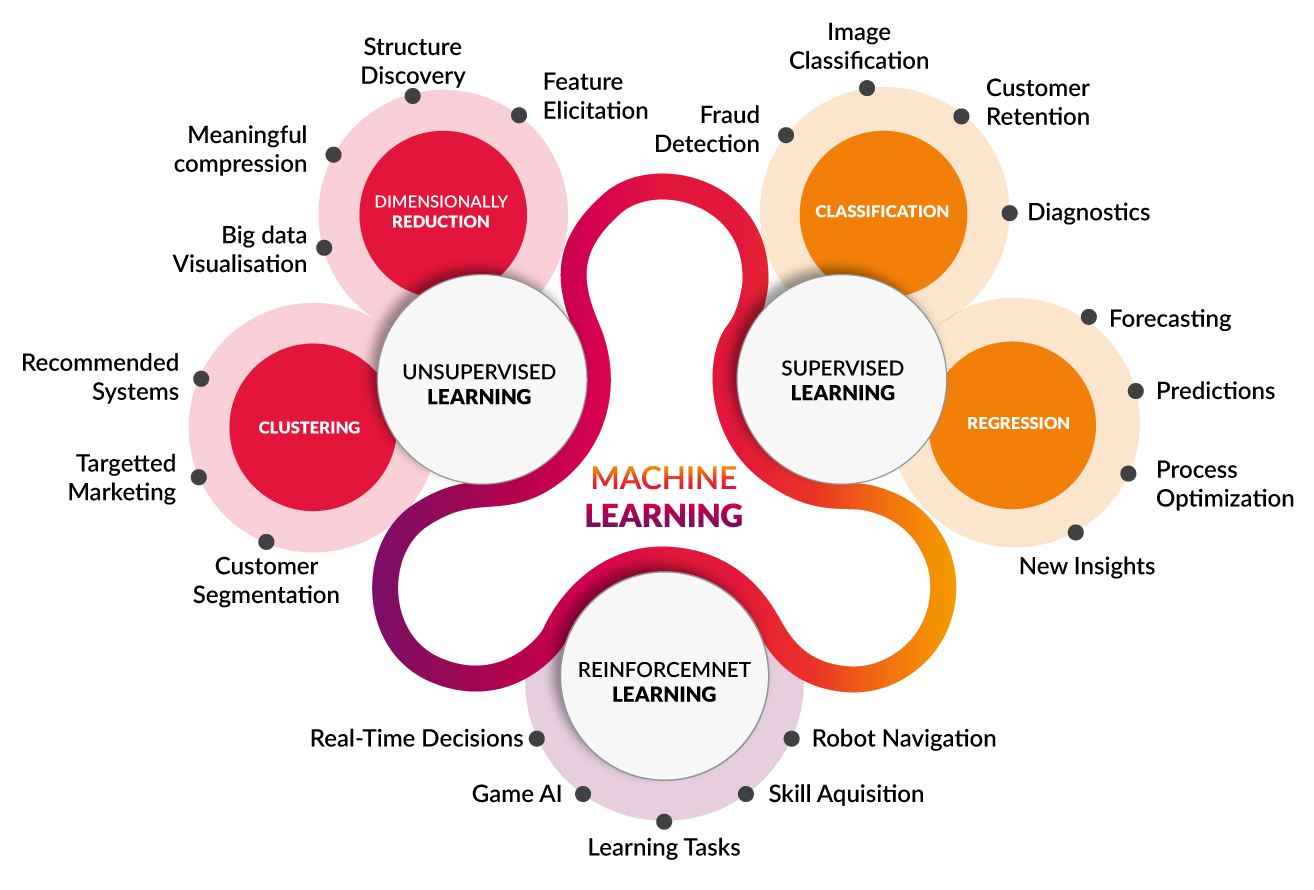Human beings can extend their awareness to adapt to changing environments. For that to happen, they start "learning". While learning is a simple task for most humans, it is too difficult and complicated for machines to gain new information or skills from data. In fact, a machine's level of knowledge is directly related to its capacity to understand. Machine learning tries to overcome this difficult mission. In other terms, machine learning is the artificial intelligence division that tries to find a answer to this question: How to allow computer to to do the learning?
When we claim the computer is learning, we assume the system will infer from examples of ideal actions or previous experiences and knowledge. More formal definition of machine learning by Tom Mitchell is A computer program is said to learn from experience E with respect to some class of tasks T and performance measure P, if its performance at tasks in T, as measured by P, improves with experience E. As a part of my learning process, I thought to share the knowledge and my approaches in this field with everyone.
(Image Credit: http://www.cognub.com/index.php/cognitive-platform/)
This repo will contain popular topics of my Machine Learning Lab with Examples for each of them. Few of them are pointed out as follows:
Below are the list of ML Lab Works :
- ML_LAB_01 : Starting Data Analyis, Reading Data and Simple Visualizations
- ML_LAB_02 : Supervised Learning with the following constraints:
- Demonstrate Naive Bayes Classifier for nominal Data.
- Demonstrate Naive Bayes Classifier for numeric Data.
- Demonstrate error using any three metrics and two plots.
- ML_LAB_03: Demonstrate K Means Algorithm, while including the following components :
- At least one plot to visualize the results.
- Elbow method for choosing optimum number of clusters.
- At least one metric for the evaluation of the quality of obtained clusters.
- ML_LAB_04: Demonstrate PCA for dimensionality reduction for image data with :
- Demonstrate application of the reduced data for visualization.
- Demonstrate the process using number of components and percentage of variance as criteria for obtaining the reduced dataset.
- ML_LAB_05: Demonstration of Linear Discriminant Analysis (LDA) for Dimensionality Reduction
- ML_LAB_06: Demonstration of Logistic Regression
- Make_Classification
- Make_Multilabel_Classification Functions for Generating Synthetic Data
- ML_LAB_07: Logistic Regression (LR)
- Accuracy Comparison With and Without Regularization (Lasso and Ridge) for Breast Cancer Dataset.
- Comparing KNN with LR for the Same Dataset
- ML_LAB_08: Linear Regression (LR)
- Implementation of Linear Regression using "winequality_red" dataset
- Demonstrating the impact of regularization using any suitable dataset of sklearn
- Generating a synthetic dataset for regression using make_regression function.
- ML_LAB_09: Support Vector Classifier (SVC)
- Classification using Linear, Polynomial and Radial Basis Function (RBF) Kernels. Demonstrate the Impact of Regularization.
- Demonstrate GridSearchCV method for obtaining optimal HyperParameters for Classification using RBF Kernel.
- ML_LAB_10: Random Forest Classifier
- Demonstrating Random Forest Classifier using "Income_Evaluation" dataset
- Implemented two Random Forest Classifier models to predict whether a person makes over 50K a year, one with 10 decision-trees and another one with 100 decision-trees.
- The expected accuracy increases with number of decision-trees in the model.
- Demonstrated the feature selection process using the Random Forest model to find only the important features, rebuild the model using these features and see its effect on accuracy.
- ML_LAB_11: MultiLayer Perceptron (MLP)
- Demonstrate Multilayer Perceptron using sklearn (House Price Data)
- Minimum two different "Network Topologies"
- 3 Different Activation Functions (Sigmoid, ReLu, TanH)
- MLP for regression.
Thank You
